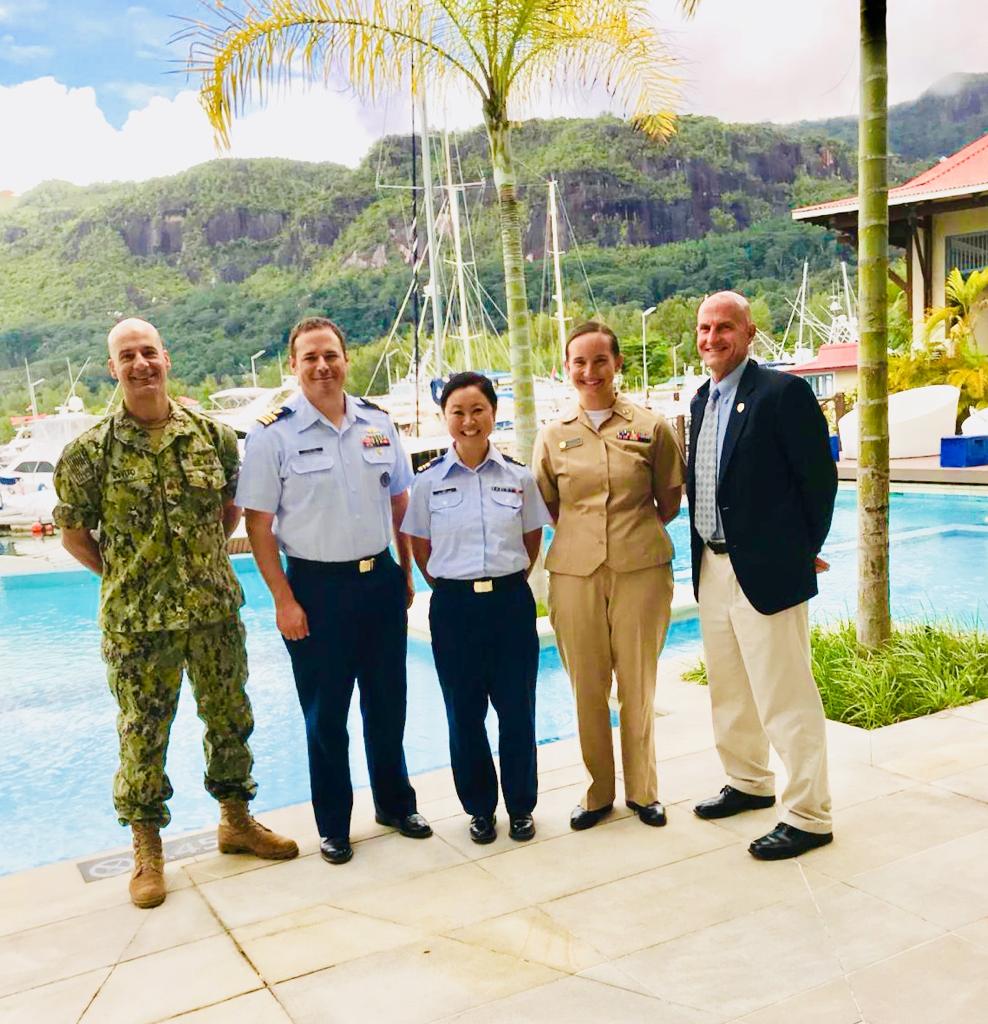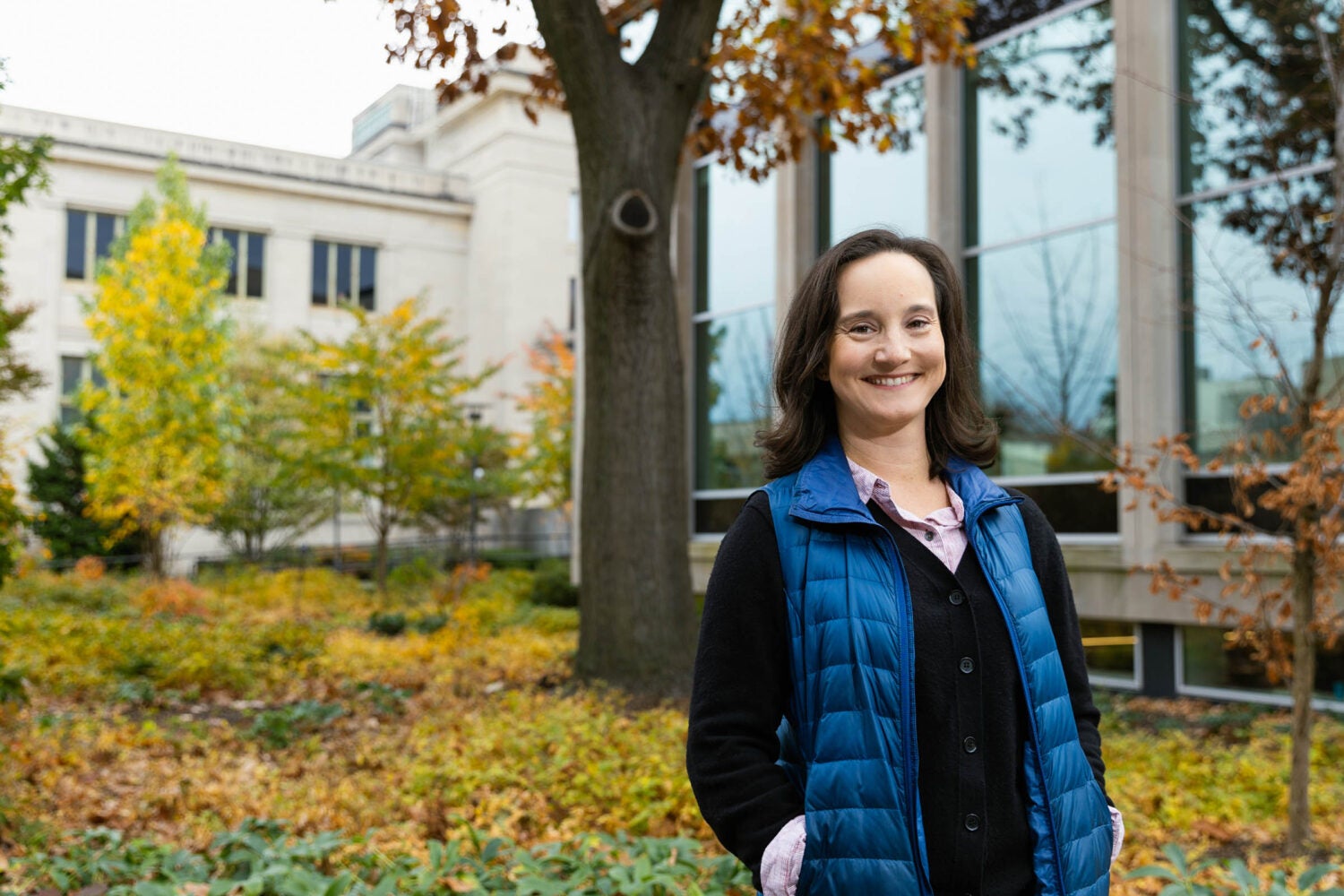Given her background, Ann “Annie” Vodhanel Preis LL.M. ’25 may have seemed an unlikely candidate to become a U.S. Navy JAG officer, a role she’s taking a break from this year to study national security law in the LL.M. program at Harvard Law School.
Born and raised in Los Angeles, Preis was a child actor who did voiceovers in commercials and movies. Her parents were Vietnam War protesters. Her mom is an artist, and her dad, a civil rights lawyer and renowned activist for people with mental illness and disabilities, wore flip-flops even in court.
“My upbringing,” said Preis, “was very hippy dippy.”
When it came time for college, Preis chose Princeton because her family wasn’t wealthy and Princeton was one of a few top-tier schools that offered grants instead of loans at that time. She majored in religion. Philosopher and activist Cornel West was her adviser for her thesis, which was on the Palestinian liberation theology of Naim Stifan Ateek. Preis minored in theater and performed in a number of productions, including some experimental pieces that were “out there,” she said, laughing. “I like to live on the edge.”
With her eye on a career in international development, she moved to Thailand after college for almost three years, first teaching English, then working at the Aceh Peace Resource Center on a government project reintegrating civil war ex-combatants into society, and finally designing and implementing communications workshops for women leaders in conflict-affected regions, as a Princeton in Asia Carrie Gordon Fellow.
Wanting to continue in international affairs, she enrolled at NYU Law School. That’s when her life took a major shift.
Her brother, John Preis, had joined Navy ROTC at Massachusetts Institute of Technology and was loving his experience. He urged her to consider becoming a Navy JAG officer. “That put the Navy on my radar,” she said, though she wasn’t yet quite sold.
Eager to see what the military was like, she did an internship after her first year of law school drafting appellate briefs submitted by military prosecutors to the Navy-Marine Corps Court of Criminal Appeals. “I was so skeptical, but I had the best summer,” she recalled. “I had not appreciated how seriously the military takes leadership and team building as a core part of how they operate at all times. It was the most respectful, supportive environment.”
“I do believe our nation needs a military and national security structure, and I want to be someone that helps the military make the best, most prudent decisions that take into account our national security interests and all the rights and values our nation holds dear.”
For example, her superiors insisted she not work past 5 p.m., a huge contrast to her subsequent summer at a large New York law firm, where, before heading into the office, her workday began at home at 4 a.m. The military “has a real appreciation that they should take care of the whole person, and I’ve found that continues to be true,” said Preis. “People value their relationships and taking care of each other rather than harping on differences.”
As a 3L, she commissioned as a Navy officer. After graduation she headed to Officer Development School in Newport, R.I., and then to the basic military lawyering course at the Navy Justice School there. Her first duty station was in San Diego, where she was a staff attorney providing civil legal assistance to 450 military members and their families, and she handled courts martial as both a prosecutor and defense attorney. She also served as the only attorney aboard the USNS Mercy hospital ship during a 10-week humanitarian mission in the Pacific.
How did her ’60s-era parents respond to her career choice? “My parents are the most supportive people,” she said. “My father would have had a harder time if I said I wanted to be an investment banker. Public service is very important to both my parents.”


That she and her brother, who is also a Navy JAG officer, encourage public service through military service “is a pretty obvious quirk in our family,” Preis said. The siblings grew up in a very different world from their parents, a post-9/11 climate where national security was a huge public concern, she said.
“I do believe our nation needs a military and national security structure, and I want to be someone that helps the military make the best, most prudent decisions that take into account our national security interests and all the rights and values our nation holds dear.”
She next served aboard the U.S.S. John C. Stennis, managing a discipline program for 5,000 service members and advising the commanding officer on international and criminal legal matters. To her delight, she learned to steer the aircraft carrier and qualified as the officer of the deck, in charge of navigation for several hours each day.
Her next tour of duty was as legal adviser to the U.S. Fifth Fleet, where she spent more than two years providing government ethics and fiscal legal advice. The fleet was stationed in Bahrain, and she was its liaison officer to the combined military forces on anti-piracy, anti-trafficking, and maritime security issues. She also was an aide to the fleet commander, which wasn’t a legal job “but was fascinating.”
She returned to the Naval Justice School to teach government ethics and professional responsibility to new lawyers and paralegals, and then served as the sole legal adviser to Carrier Strike Group Three — which included an aircraft carrier, several destroyers, and an air wing — stationed in Bremerton, Wash., advising on the law of the sea and law of armed conflict.
This year, her duty station is the Harvard Law School campus and the LL.M. program, where she’s focusing on national security law. Studying these issues with students from around the world “is an incredible opportunity,” she said.
When she graduates next May, she’ll be working on a master’s degree in defense and strategic studies through the Naval War College. She plans to work in an operational command in locations where “strategic decisions are being made, and where legal decisions can get the thorniest,” she said. “I like the challenge.”
Want to stay up to date with Harvard Law Today? Sign up for our weekly newsletter.
